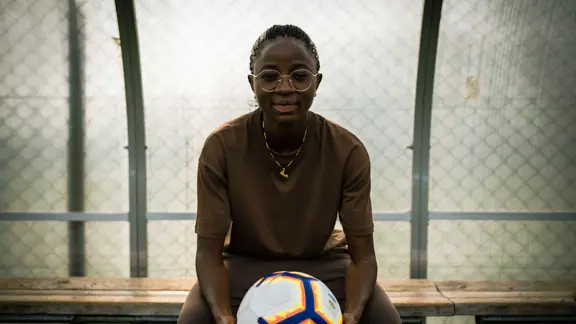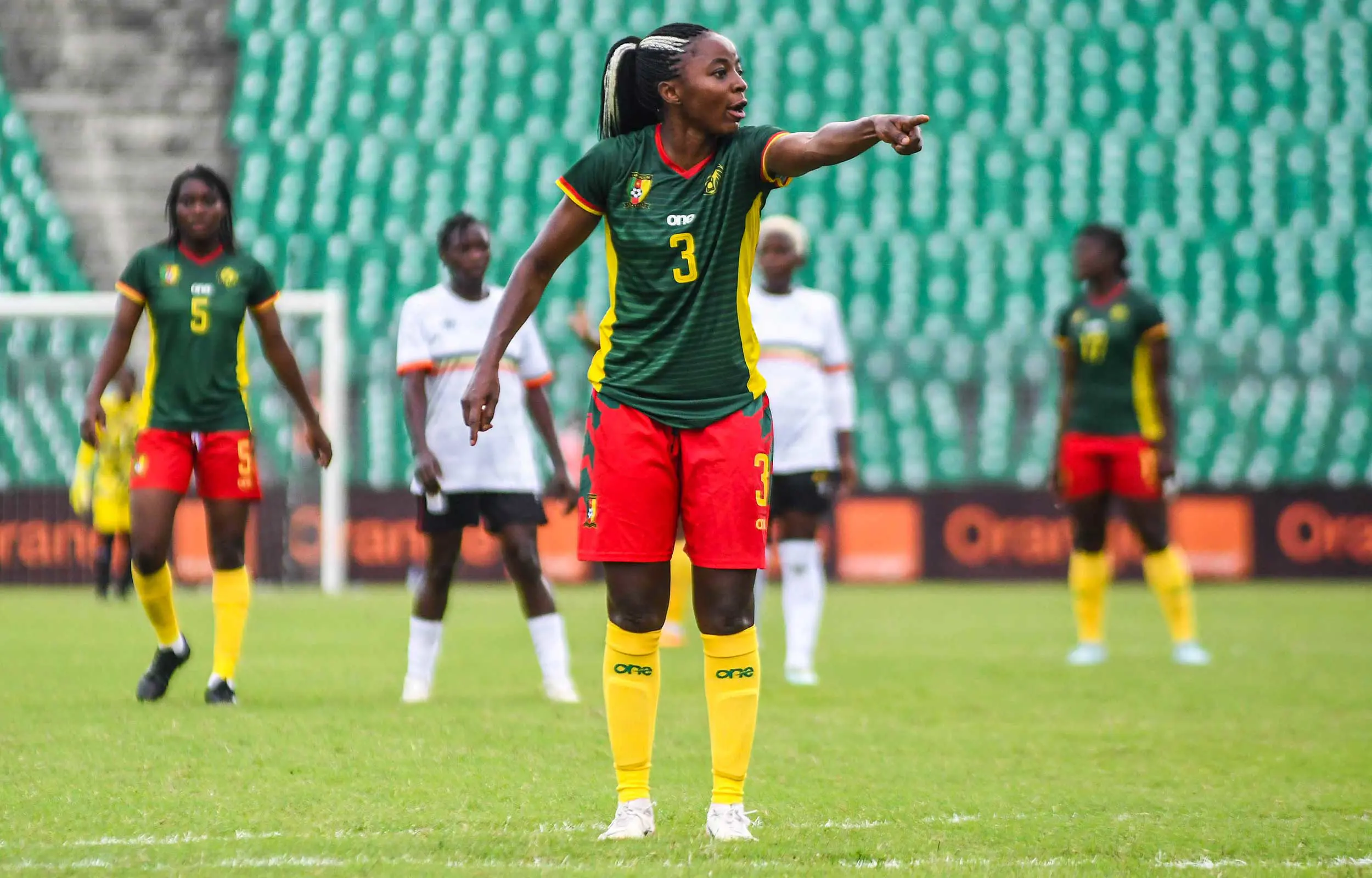Player Op-Ed
Ajara Nchout: "I hope my story can provide an insight into a player observing Ramadan"

About the author
Cameroon international Ajara Nchout joined Saudi Arabian side Al Qadsiah in January 2024 after playing for well-known European clubs such as Valerenga, Atletico Madrid and Inter Milan. The 31-year-old gives an insight into observing Ramadan as a Muslim footballer for the first time in the Middle East and what clubs can do to help support players fasting during the religious month in Muslim minority countries.
By Ajara Nchout
I’ve played in Africa, North America, Europe and earlier this year I moved to a club in Saudi Arabia. I would say the only difference between those places and Saudi is that there is more emphasis on religion here.
While I’m a practising Muslim and come from a strong Muslim family in Cameroon, my religion wasn’t the sole reason why I chose to play in Saudi Arabia – I also wanted a change of environment and to experience playing football somewhere else – but the fact that the country really respects religion was important to me coming here.
I had heard a lot of negative comments about Saudi Arabia before I came here. People said that there is no women’s football, that women aren’t free. But since arriving here earlier this year, I’ve found that life is normal.
Football adapts to religion and the Ramadan calendar in Saudi Arabia. For instance, training and matchday schedules are tailored to help players observing the religious month. After Iftar, the evening meal when breaking your fast, training will start around 9pm to allow us time to eat after fasting, properly digest, and get some energy.

Kick-off times on matchdays are also adapted from 4-6pm to 10pm, allowing us sufficient time to refuel and hydrate for the game.
On matchday, I travel with the veil that I'm going to wear to pray and sometimes when the prayer finds me at the stadium, I do it afterwards or according to the team’s schedule.
For Muslims, Ramadan is a sacred period of self-reflection, self-discipline and empathising with those less fortunate. It’s a time that brings us even closer to our religion. Fasting for 16 hours a day as an athlete is not easy, which is why support networks are so important during this time.
When I was playing in Europe, it felt like there wasn’t a lot of support for players observing Ramadan. Truth be told, it was difficult to fast for 16 hours as a player when training was starting at, say, 10am. Even though I’ve been fasting since I was 15 years old and my body is used to it, I couldn't do it for 30 days as a player in Europe because it’s difficult to perform when training schedules aren’t adapted that month.
This year, though, Ramadan feels different; not just because of the change in training and match schedules to help players, but also the fact that I’m participating in it alongside so many other team-mates. Previously, I was usually the only person fasting; or at other clubs, there might have been only two or three of us. But when you realise that you are not doing it alone and you are accompanied by several others on this journey, it’s a huge mental boost.
For Muslims, Ramadan is a sacred period of self-reflection, self-discipline and empathising with those less fortunate. It’s a time that brings us even closer to our religion.
It would naturally be difficult to adapt match schedules in Europe and North America during Ramadan, but clubs can still provide support for Muslim players during the month. Simply having a conversation with them to adapt a personalised training programme will help get the best out of them as a high-performance athlete when fasting – whether that’s training later in the afternoon or allowing them to finish training earlier to boost their recovery.
If you’re a player fasting, you might not have the energy to put in all the effort if training is, for instance, mid-morning. You're always going to be holding back a little because there are times when you're doing sprints that you want to drink water, you need to refuel, but you can't. If clubs in Europe can adapt a player’s schedule to the Ramadan calendar though, it would go a long way – and would help get the best out of them during the month.
Fasting breaks in Europe during matches are also vital for players observing Ramadan, allowing them to refuel. I’ve seen it before where a player will fake an injury so that a team-mate can break their fast, so if leagues can consciously introduce measures where players don’t have to resort to that, it can only be good for everyone. It would also send a message that football respects religion.
I hope my story can provide an insight into a player observing Ramadan. As footballers, we are all born with different religions, different cultures, and everyone should be respected. I wish a lot of courage to all players who are currently observing Ramadan.
